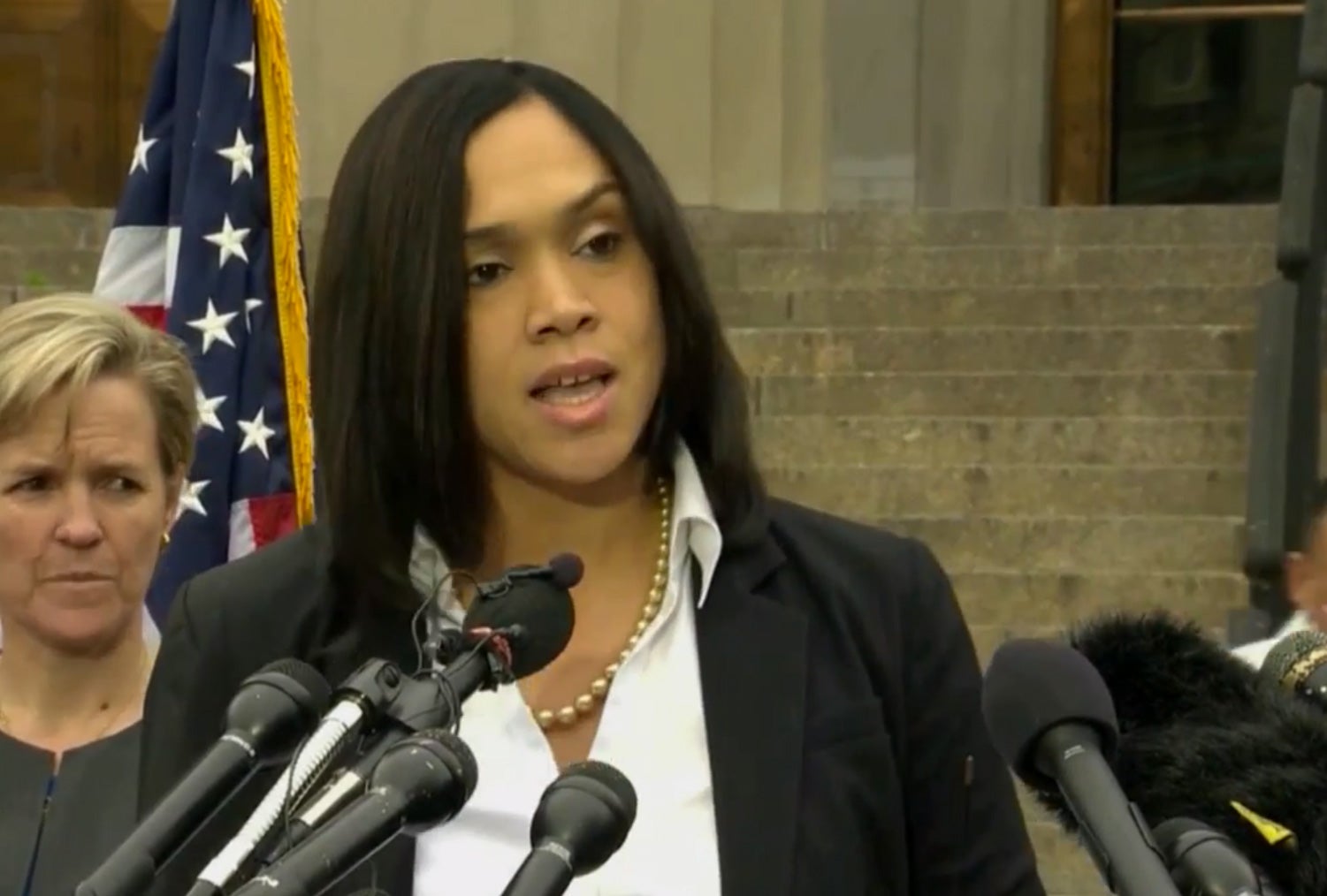
An appeals court has blocked a lawsuit that was brought against Baltimore’s State attorney Marilyn J. Mosby by five Baltimore city police officers who claimed she prosecuted them with malicious intent following the death of Freddie Gray in 2015.
Gray died from injuries he sustained while riding in a police van while unbuckled. Shortly after his death, Mosby brought charges ranging from official misconduct to second-degree murder against the officers involved. Three were acquitted by a judge of all charges in June 2016 and Mosby dropped the remaining three cases.
But five of the officers involved filed a civil suit against Mosby for malicious prosecution, arguing that she charged them because of unrest that followed Gray’s death, the Baltimore Sun reports.
A U.S. District Judge ruled in January 2017 that charges including malicious prosecution, defamation, and invasion of privacy could move forward against Mosby.
Even then-Baltimore mayor Stephanie Rawlings-Blake accused Mosby in 2016 of bowing to political pressure to charge the officers.
“The political pressure is real when you are in big jobs, and you can’t bow to the political pressure and charge when you’re not ready. You have to stand up, be in the big role and say to the people … you need time to continue to investigate,” Rawlings-Blake said.
But now the 4th U.S. Circuit Court of Appeals has blocked the lawsuit, because, as argued by Mosby’s lawyer, she was immune from the lawsuit.
“We resoundingly reject the invitation to cast aside decades of Supreme Court and circuit precedent to narrow the immunity prosecutors enjoy,” Chief Judge Roger Gregory wrote in the court’s opinion. “And we find no justification for denying Mosby the protection from the suit that the Maryland legislature has granted her.
“That the Officers disagree with Mosby’s decision to prosecute — as most defendants do — or with the information in the application for Statement of Charges — which inherently contains defamatory information — does not entitle them to litigate their disagreement in court, and much less recover damages,” Gregory wrote.
The officers now have 90 days to decide if they want to submit a petition to the Supreme Court.
